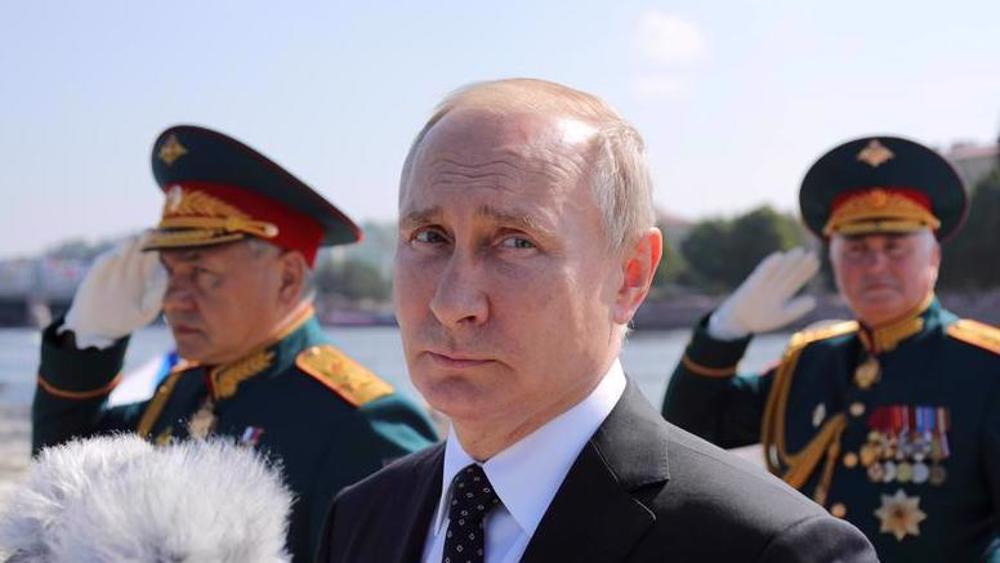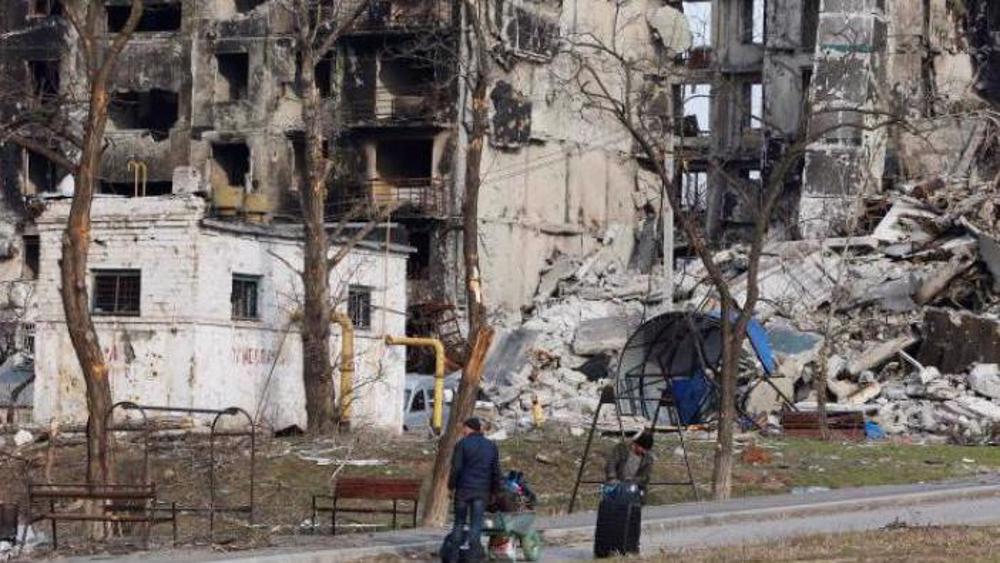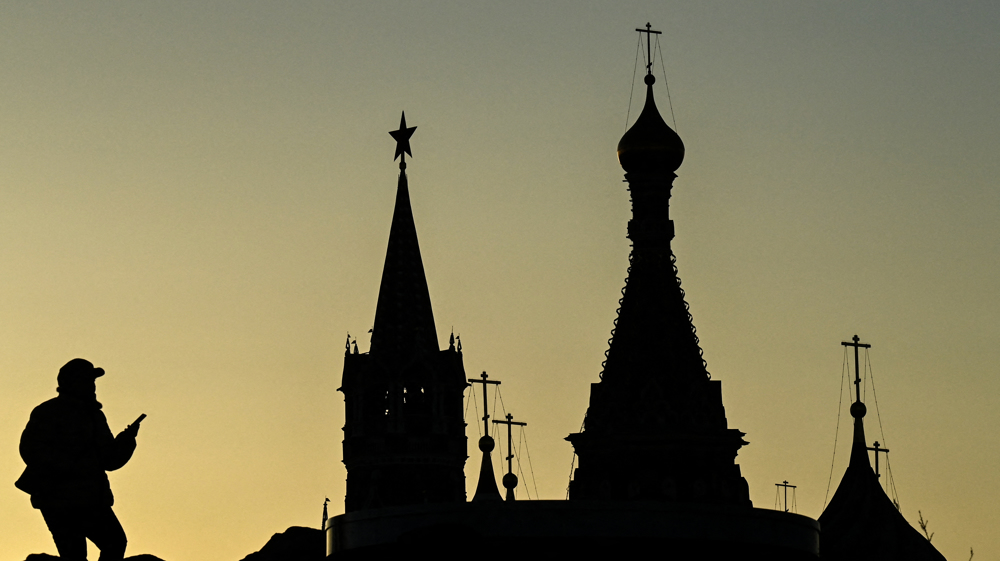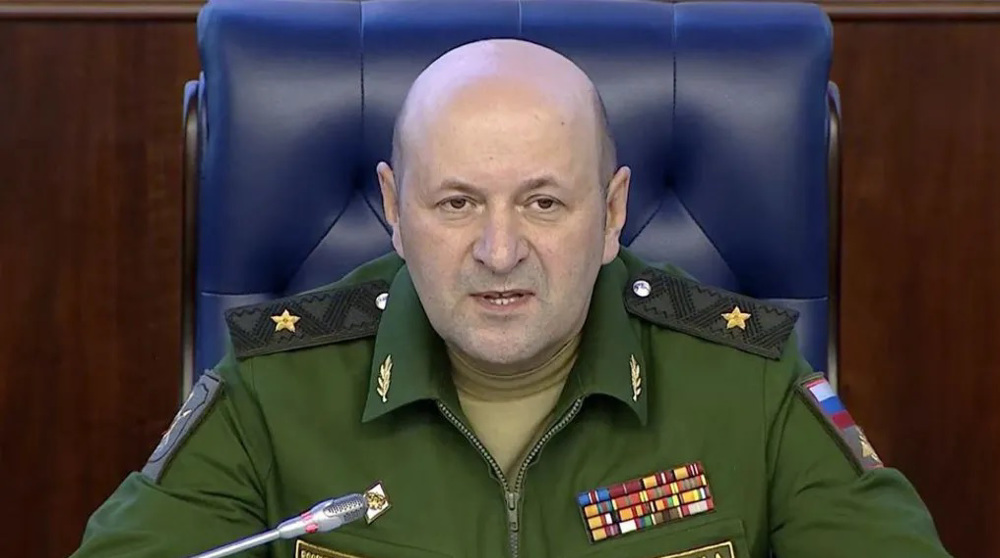Poll: Putin’s rating up among Russians since military operation in Ukraine
President Vladimir Putin’s ratings have increased among Russians since the start of a military operation in Ukraine, a new polling has showed.
According to the nongovernmental sociological organization Levada Center on Thursday, the polling showed 83 percent of Russians approve of Putin's actions, up from 71 percent in early February.
Fifteen percent of the respondents said they did not approve of the president, down from 27 percent.
Prime Minister Mikhail Mishustin and the Russian government as a whole saw an improvement in their approval ratings, the poll also showed.
New forces invited
On Thursday, reports said the government has ordered 134,500 new conscripts into the army as part of Russia's annual spring draft.
Defense Minister Sergei Shoigu, however, said the newly invited forces won’t be sent to any “hot spots” such as Ukraine.
In a statement published on the defense ministry’s website, Shoigu said most military personnel will undergo professional training in training centers for three to five months.
"Let me emphasize that recruits will not be sent to any hot spots,” he said.
President Putin has also denied plans to send any of the newcomers to Ukraine. According to Putin's spokesman, the president has ordered military prosecutors to investigate and punish officials responsible for disobeying his instructions to exclude conscripts.
However, Mikhail Benyash, a lawyer representing several members of Russia's National Guard, said that under Russian law, conscripts might be sent to fight after several months of training.
Russian troops regroup
NATO Secretary-General Jens Stoltenberg claimed Thursday that Russian forces were not pulling back from their positions in Ukraine and the alliance expected “additional offensive actions” from Moscow.
'According to our intelligence, Russian units are not withdrawing but repositioning. Russia is trying to regroup, resupply and reinforce its offensive in the Donbas region,” Stoltenberg told reporters in a press conference in Brussels.
NATO’s chief also said the alliance is set to provide Ukraine with weapons and armaments as a long as necessary.
Western countries, led by the United States, have slapped increasingly tough sanctions on Russia since Putin announced a "special military operation” on February 24 to demilitarize and “de-Nazify” Ukraine.
Delegations from Kiev and Moscow have been negotiating for peace and a ceasefire in recent weeks, but no breakthrough has been achieved yet.
VIDEO | Austrians arrested at Gaza protest in Vienna
10 killed in bus crash in western Iran
5 Israeli forces killed as Palestinian fighters face up to regime’s war machine
VIDEO | An insider's view of the country: Persian Tahini, Royan in Mazandaran
VIDEO | Israeli settler killed during strike against Tel Aviv; fresh aggression targets Yemen’s capital
VIDEO | Yemen’s missile strikes on Tel Aviv
Iran to open 6 GW of new power capacity by next summer
VIDEO | South Korean rallies set the stage for battle over Yoon's impeachment












 This makes it easy to access the Press TV website
This makes it easy to access the Press TV website